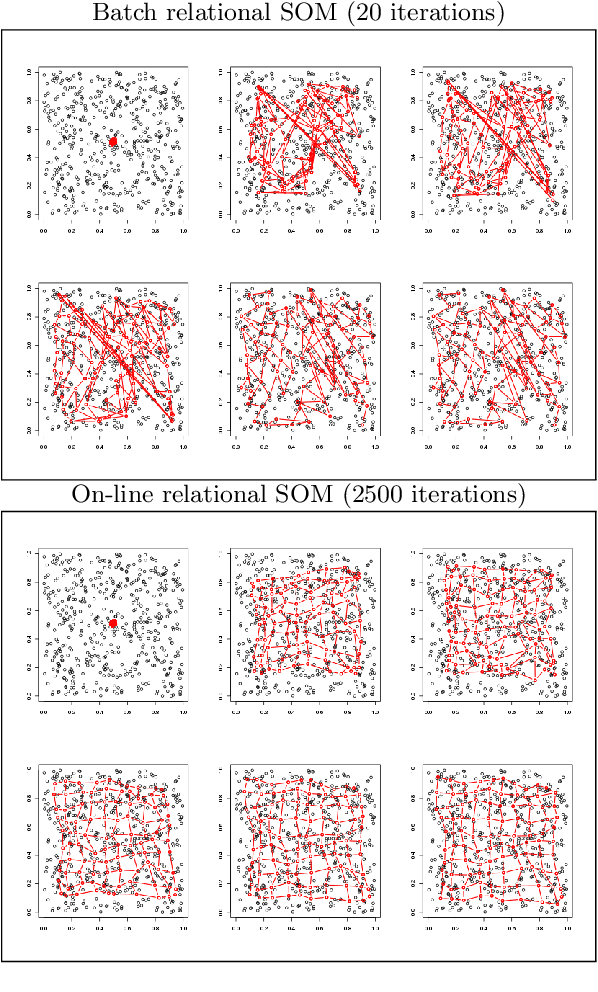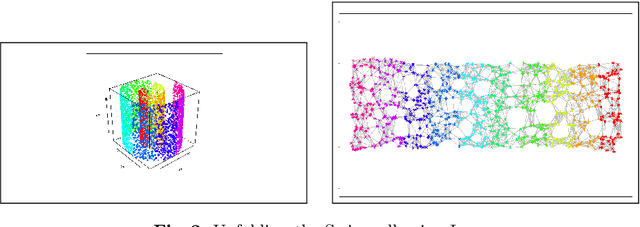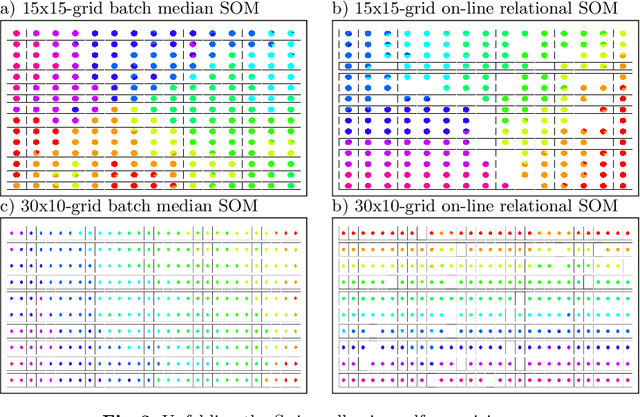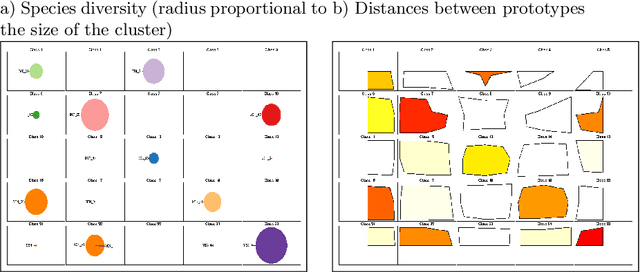On-line relational SOM for dissimilarity data
Paper and Code
Dec 27, 2012



In some applications and in order to address real world situations better, data may be more complex than simple vectors. In some examples, they can be known through their pairwise dissimilarities only. Several variants of the Self Organizing Map algorithm were introduced to generalize the original algorithm to this framework. Whereas median SOM is based on a rough representation of the prototypes, relational SOM allows representing these prototypes by a virtual combination of all elements in the data set. However, this latter approach suffers from two main drawbacks. First, its complexity can be large. Second, only a batch version of this algorithm has been studied so far and it often provides results having a bad topographic organization. In this article, an on-line version of relational SOM is described and justified. The algorithm is tested on several datasets, including categorical data and graphs, and compared with the batch version and with other SOM algorithms for non vector data.
 Add to Chrome
Add to Chrome Add to Firefox
Add to Firefox Add to Edge
Add to Edge